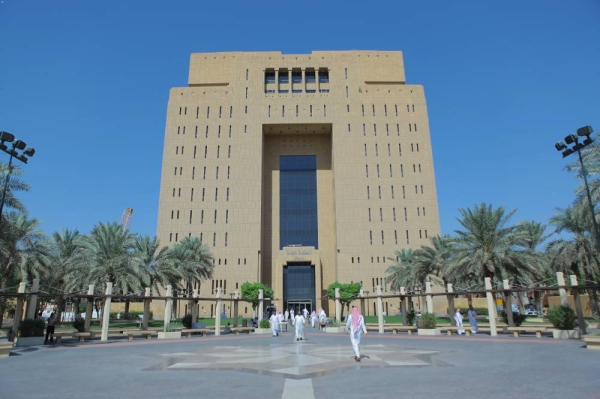
Dr. Khalid Al-Yousef, president of the Board of Grievances and chairman of the Administrative Judicial Council, inaugurated the Administrative Implementation Court in Riyadh on Monday. A number of ministers and members of the judiciary attended the ceremony held at the Ritz-Carlton Hotel in Riyadh.
The administrative judicial enforcement court, the first of its kind in the Kingdom, would have jurisdiction to enforce court decisions issued even against ministries and government agencies. The ceremony included many visual and interactive segments, which reviewed the details of activating the Implementation Law before the Board of Grievances and opening of its first court. It also included a number of events, a digital exhibition, a group of innovative awareness methods to introduce the nature of the administrative judiciary, the Implementation Law, its digital platforms and services, and a review of the Board of Grievances’ aspirations to benefit from emerging technologies and artificial intelligence software to serve its work and improve and accelerate its outputs.
Dr. Al-Yousef said that the Implementation Law and its activation on judicial rulings and administrative documents ensures judicial security and contributes to supporting the elements of the investment environment, social and tourism development and the means of attraction to these sectors.
Dr. Al-Yousef said that the Implementation Law before the Board of Grievances comes to demonstrate the direction of the wise leadership and its keenness to modernize the judicial systems and codify its legislation so as to ensure the well-being and welfare of citizens and residents of the Kingdom.
He stated that the Board of Grievances derives its jurisdiction from the Enforcement Law in front of it by forcible execution against administrative bodies in accordance with the rules and procedures spelled out in the law. These included a penalty for violations such as refraining from implementation of the verdict, and exploiting influence or authority to prevent implementation. The penalties included imprisonment and fines, and considering them as corruption crimes and major crimes that warranted arrest of the offenders.











